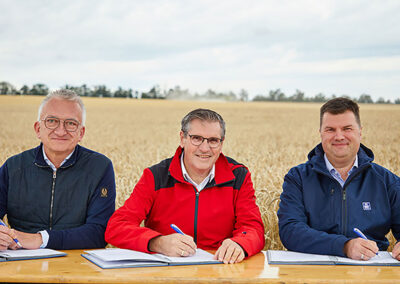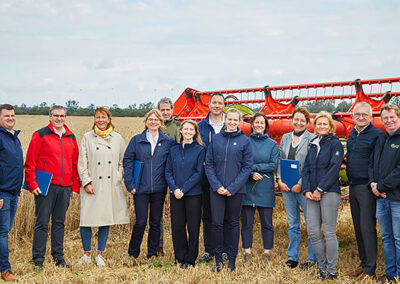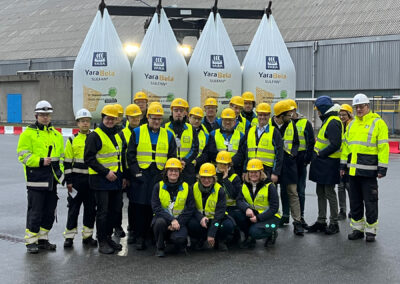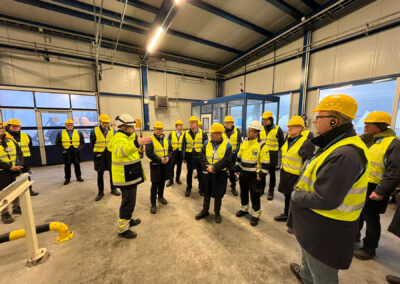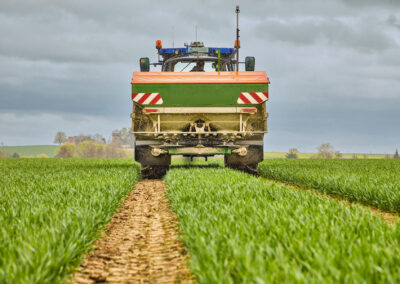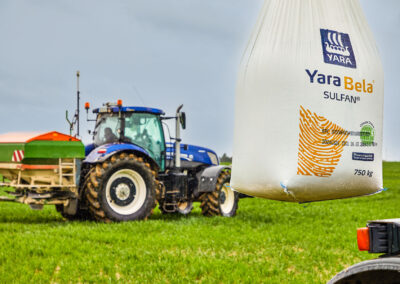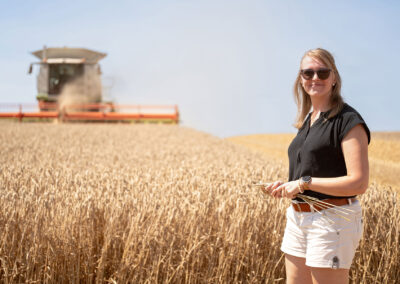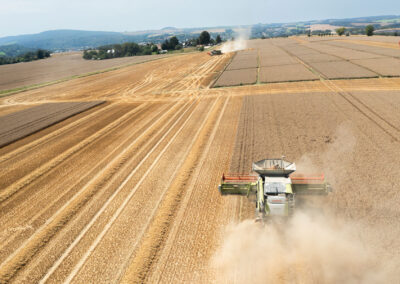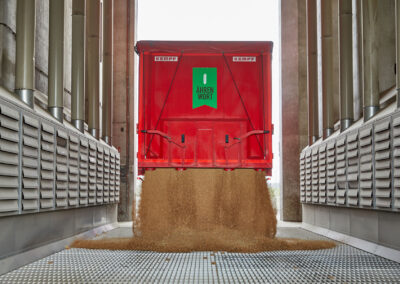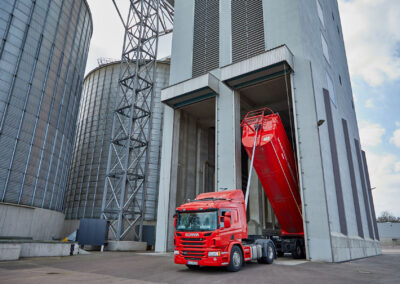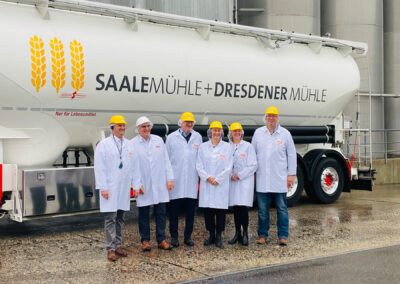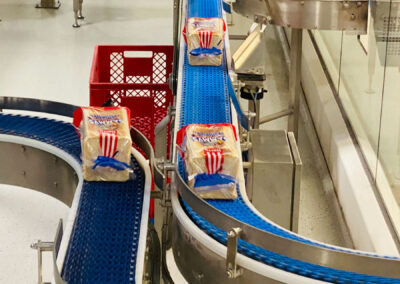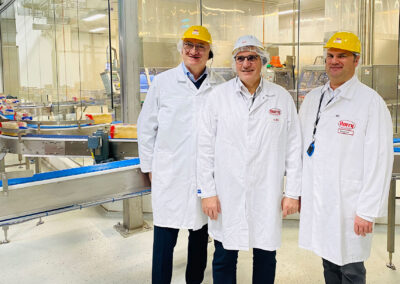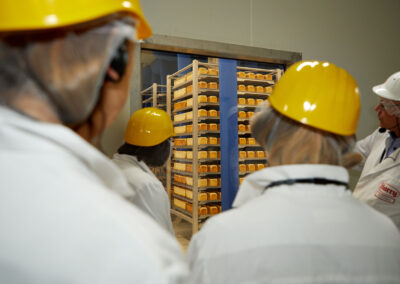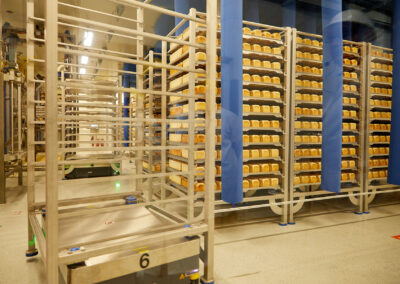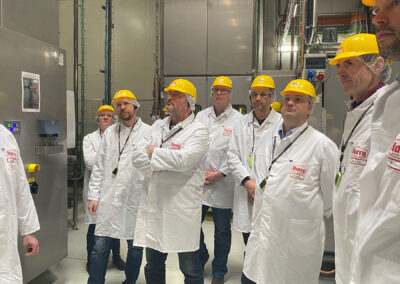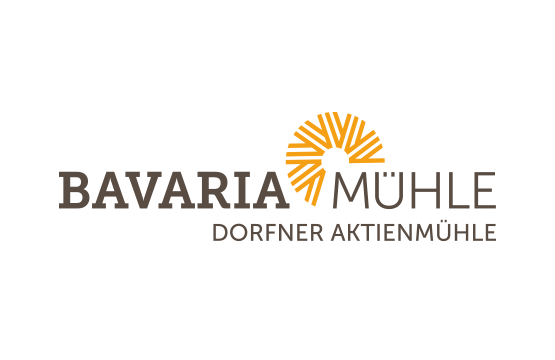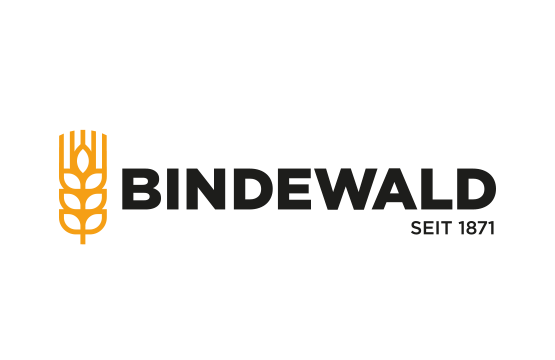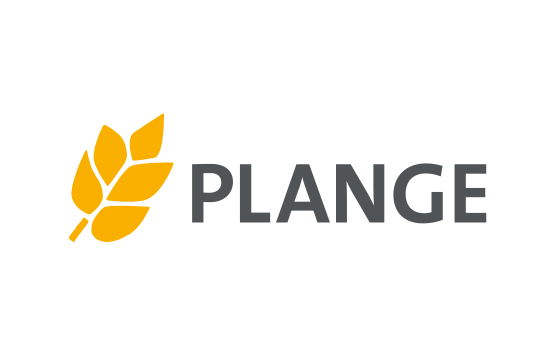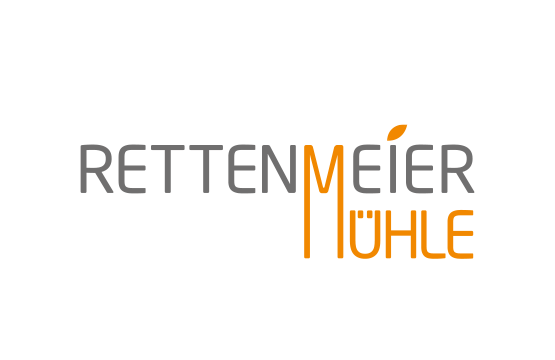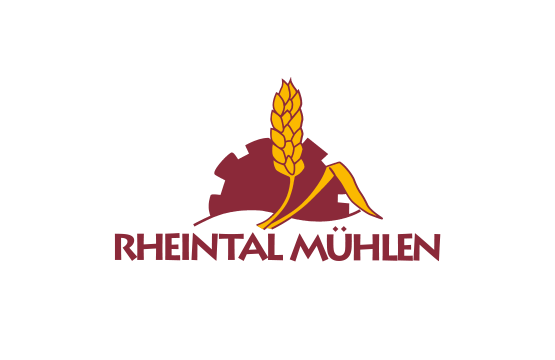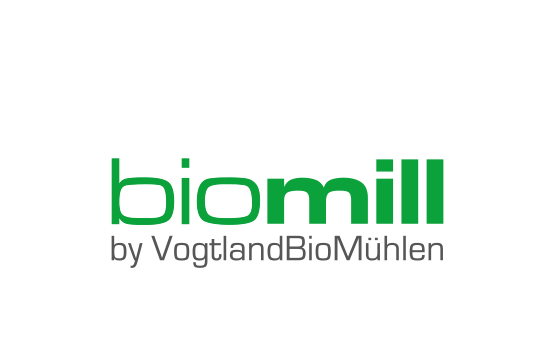Next milestone in the cooperation project between Yara, the Bindewald & Gutting Mühlengruppe and Harry-Brot GmbH
The next milestone in the cooperation project between Yara, the Bindewald & Gutting Mühlengruppe and Harry-Brot GmbH: today, the first Sammy’s Super Sandwich was produced at Harry-Brot in Wiedemar using flour made from CO2-reduced wheat. The project started in August 2023 with the signing of the cooperation agreement in farmer Wilfried Mißlbeck’s wheat field in Bernburg, Saxony-Anhalt. Since then, 10 contract farmers from the Bindewald & Gutting Mühlengruppe have actively supported our cooperation project. Our special thanks for this.
The farmers representing the Saalemühle + Dresdener Mühle growing regions cultivated 8630 tonnes of wheat on 1212 hectares of land. This is currently being milled into around 7000 tonnes of flour. The first batch was delivered to the Harry-Brot bakery in Wiedemar this week and baked today in the presence of all those involved in the project. The beauty and at the same time the special thing about this project is the intensive cooperation between a wide range of partners in the value chain and not the imposition of demands.
The project shows how CO2 emissions can be significantly reduced in the production of common wheat and thus in the entire food value chain through two key factors:
- best practice farming: this means cultivating the land by farmers with a high level of expertise and the best qualifications, using site-specific, needs-based and adapted cultivation of the land; cultivation of selected varieties, sensible use of state-of-the-art technologies (precision farming)
- the use of fertilisers based on renewable ammonia, i.e. the hydrogen required for ammonia synthesis was produced using renewable energy instead of fossil energy
Compared to conventional fertilisers, the CO2 footprint of wheat in the project was reduced by around 24% through the use of CO2-reduced fertilisers made from renewable ammonia. As a result of the already exemplary agricultural practices of the participating farms, the carbon footprint for wheat from the project areas is an impressive 40% lower than the average value for wheat produced in Germany (according to a study recently published by the Julius Kühn Institute).
For the final bread, Sammy’s Super Sandwich, this represents a reduction of approximately 17% in greenhouse gas emissions compared to the average for German wheat.
All partners are convinced that the approach of not emitting greenhouse gases in the first place is even better than offsetting greenhouse gases afterwards.

